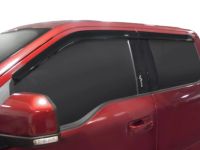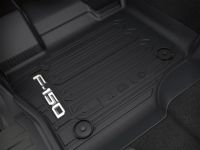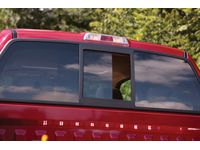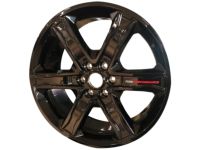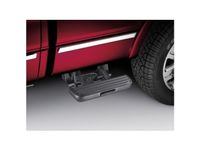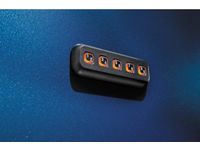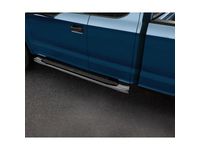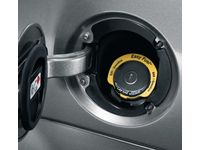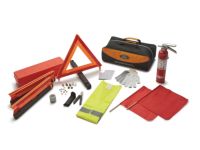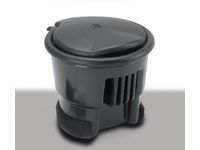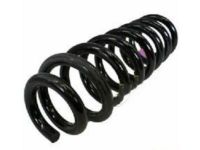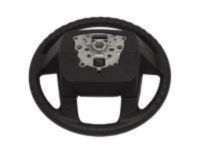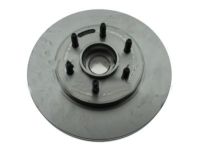

Why choose FordPartsGiant
- Optimal Shopping Experience
Want to buy parts for your vehicle? Look no further than FordPartsGiant.com, the best place for Ford F-150 genuine parts. For years, all of our Ford F-150 parts and accessories have been expedited directly from dedicated dealers and backed by the manufacturer's warranty, so buying from FordPartsGiant.com is always risk-free.
- Dedicated Customer Service
Our first-class customer service team is committed to providing you with the best assistance possible. Dedicated representatives are standing by to assist you by email, live chat, or phone. Every effort is made to ensure your order for OEM Ford F-150 parts arrives fast no matter your location in the nation, so your vehicle is up and running and back on the road.
- Unbeatable Prices
What makes us the best online source for Ford F-150 parts and truck parts? Our goal is to offer the lowest prices. You get giant savings shopping with FordPartsGiant.com. With a complete parts catalog, we cover a full selection of affordable OEM Ford F-150 parts and pickup parts with a huge inventory.
Popular Genuine Ford F-150 Parts
- Engine Parts View More >
- Chassis Parts View More >
- Electrical Parts View More >
- Body And Paint Parts View More >
- Lamps & Wiring Parts View More >
- Wheels & Brakes Parts View More >
- Fuel System & Manifolds Parts View More >
- Speedometer, Bumpers, Mirrors & Wipers Parts View More >
- Automatic Transmission Parts View More >
- Transmission Parts View More >
- Front Axle & Steering Parts View More >
- Frame, Exhaust System & Springs Parts View More >
Shop Genuine Ford F-150 Parts with FordPartsGiant.com
The Ford F-150, a globally renowned full-size pickup truck, has held a prominent place in America's automotive history for over 70 years. Launched in 1948, the F-150 is part of Ford's F-Series line and is currently in its 14th generation. The F-Series was introduced as the Ford Bonus-Built, replacing the passenger car-based pickup line of 1942. Available in eight weight classes, the F-Series brought major changes to the truck market. Between 1953 and 1956, the F-100 and F-250 models shared the same cabs, doors, engine hoods, and interior wings. The fourth-generation, introduced in 1961, was larger and shorter, featuring a new range of engines and transmissions. It offered an optional integrated cab and bed, an experiment that was discontinued in 1963 due to poor reception. By 1965, the F-Series had undergone a significant mid-cycle redesign, growing in size and engine options. The fifth-generation Ford Bronco became an F-Series pickup in 1978, and 1979 marked the final year of the 460 engine in half-ton trucks. Fuel injection was introduced for the V8 model in 1986 and the 4.9-liter I6 engine in 1987. The F-Series was the first American platform vehicle to be sold without a carbureted engine. Significant modifications over the years included a name change to the Ford Ranger Compact Pickup and a rebranding in 1982 when the Ford Blue Oval emblem replaced the FORD logo on the grille. As a tribute to the first factory truck, Ford offered a 75th Anniversary Package with special features for the 1992 F-Series. Today, the Ford F-150 remains an icon of strength and reliability.
Like most pickup trucks, the Ford F-150 endures heavy-duty tasks such as transporting and loading, leading to inevitable problems over time. Notably, engine problems such as misfiring, rough idling, no-start conditions, decreased power, acceleration, and fuel economy, often caused by spark plug failure. There can also be ticking or clunking noises from the cylinder head, or overheating due to coolant leaks. These issues might point to the ignition coil failure and require checking the rocker arm and intake manifold gasket. Furthermore, the braking system, crucial in emergencies, often experiences brake fluid leaks and corrosion. Parts like brake backing plate, brake dust shields, brake line, brake pads, brake disc, brake pedal, parking brake cable, and brake booster are prone to wear and require extra attention during inspection. Lastly, don't overlook parts like the door handle, headlight, and window switch, as they're vital to the F-150's longevity.
Choosing OEM parts guarantees top-tier quality and durability. They are carefully designed to adhere to the strict specifications of the official factory and undergo thorough quality control inspections during production, ensuring long-lasting resilience and an impeccable fit. We welcome you to purchase brand-new Ford F-150 parts, like Manual Transmission from our website. We offer a huge selection of genuine parts at the best prices possible. Do you want to have greater assurance of quality, reliability, durability, and affordability? You're at the right place, all our OEM F-150 parts come backed with the manufacturer's warranty.
Ford F-150 Parts Questions & Answers
- Q: How to remove and replace a front shock absorber/coil spring assembly on Ford F-150?A: To replace the shock absorber/coil spring assembly, loosen the front wheel lug nuts and raise the vehicle. Remove the front wheels and the nuts attaching the shock's upper end to the frame. Detach the tie-rod end from the steering knuckle. Remove the fasteners attaching the shock's lower end to the lower control arm. Inspect the shock absorber, coil spring, and spring seats for damage. If needed, service the unit or replace it. To install the new assembly, reverse the removal steps and tighten all fasteners. Note: replacing individual components may require a repair shop and could be more costly.
- Q: How do you remove and install a steering wheel on Ford F-150?A: Park the vehicle with the front wheels straight and the steering wheel centered. Disconnect the negative battery cable. Disable the airbag system. Pry out the small covers on each side of the steering wheel and unscrew the bolts to remove the airbag module. Lift off the airbag module and disconnect the airbag and horn electrical connectors. Unplug the electrical connector on the right side of the clock spring. Remove the steering wheel retaining bolt and mark its position. Lift the steering wheel off the shaft using a puller if necessary. Ensure the clockspring is centered by turning it counterclockwise until it becomes hard to turn, then clockwise and align the marks. If needed, tape the clockspring to prevent rotation and remove it from the steering column. To install, align the marks on the steering wheel hub and shaft, slide the wheel onto the shaft, and tighten the bolt. Reconnect the electrical connectors to the airbag module and tighten the retaining bolts.
- Q: How to inspect,remove and install the Brake Disc on Ford F-150?A: Start brake inspection by loosening lug nuts and lifting the vehicle. Remove wheels and for 4WD models, retain the disc with lug nuts. Detach the brake caliper without straining the brake hose. Examine the disc for damage like score marks or deep scoring. Use a dial indicator to check disc run out, and if needed, get the disc refinished, without going below minimum thickness. To replace the disc, remove the caliper, retaining washers, and for some models, the spindle nut. Install the new disc, tighten the spindle nut if required, reinstall the caliper and bracket. Lower the vehicle and test brakes before driving.


















































